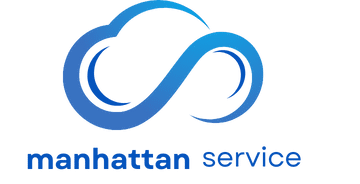
How to utilize blockchain for enhancing transparency in UK’s food supply chain?
In today’s interconnected and fast-paced world, ensuring the transparency and traceability of the food we consume has never been more important. The UK's food supply chain is a complex network involving multiple stakeholders, from farmers and manufacturers to distributors and retailers. As consumer demand for food safety and transparency grows, businesses must adopt innovative solutions to build trust and improve management. One such solution is blockchain technology. In this article, we will explore how blockchain can enhance transparency in the UK's food supply chain, offering a detailed guide on its benefits, applications, and future potential.
Understanding Blockchain in the Food Industry
Blockchain technology, initially developed for cryptocurrencies like Bitcoin, has evolved into a powerful tool for various industries, including the food industry. At its core, blockchain is a decentralized, distributed ledger that records transactions across multiple computers, ensuring that the data is secure, immutable, and transparent. This technology is particularly well-suited for the food supply chain due to its ability to provide real-time and accurate data across all stages of the supply chain.
A lire aussi : What are the most effective ways to secure IoT devices in UK’s smart homes?
In the food industry, blockchain can track the origin of food products, monitor their journey through the supply chain, and ensure that all transactions are verified and transparent. This level of traceability is crucial in combating issues like food fraud and ensuring food safety. By implementing a blockchain supply chain system, businesses can enhance their transparency traceability efforts, providing consumers with confidence in the products they purchase.
Enhancing Food Traceability with Blockchain
Food traceability is the ability to track the movement of food products through various stages of production, processing, and distribution. Traditionally, traceability systems have relied on paper-based records and manual processes, which can be prone to errors and manipulation. Blockchain technology offers a blockchain-based solution that ensures data integrity and transparency.
A voir aussi : How to build a scalable e-commerce platform for UK’s independent artists?
With blockchain, every transaction in the food supply chain is recorded on a digital ledger, which is immutable and tamper-proof. Each participant in the supply chain, such as farmers, processors, and retailers, can record data onto the blockchain, creating an auditable trail of information. This means that if a food safety issue arises, the source of the problem can be quickly identified and addressed.
Moreover, consumers can access this data through QR codes or other digital interfaces, allowing them to verify the authenticity and safety of the food products they purchase. This transparency builds trust between consumers and brands, fostering loyalty and encouraging responsible consumption.
Combatting Food Fraud with Blockchain Technology
Food fraud, which includes activities like mislabeling, adulteration, and counterfeiting, is a significant concern in the food industry. It not only poses risks to consumer health but also damages brand reputations and results in financial losses. Blockchain technology offers a robust solution to this problem by ensuring traceability and accountability at every stage of the supply chain.
By implementing blockchain, businesses can create a transparent and immutable record of the entire journey of a food product, from farm to fork. This real-time data can be used to verify the authenticity of products, ensuring that they meet regulatory standards and are free from fraud. Additionally, smart contracts - self-executing contracts with the terms of the agreement directly written into code - can be used to automate compliance and enforcement of food safety standards.
For example, if a batch of organic apples is found to contain pesticides, the blockchain record can quickly trace the source of contamination and identify the responsible party. This level of accountability helps deter fraudulent activities and ensures that consumers receive genuine and safe products.
Improving Supply Chain Efficiency and Management
Blockchain technology not only enhances transparency and traceability but also improves the overall efficiency of the food supply chain. Traditional supply chain management systems often suffer from siloed data, lack of coordination, and delays in information flow. Blockchain, with its decentralized nature, allows for seamless sharing of data across all stakeholders, improving coordination and reducing inefficiencies.
For instance, by using blockchain, suppliers can provide real-time updates on the status of shipments, allowing retailers to better manage inventory and reduce food waste. This real-time visibility also enables businesses to respond more quickly to disruptions, such as recalls or delays, minimizing the impact on the supply chain.
Moreover, blockchain can be integrated with other technologies, such as the Internet of Things (IoT) and artificial intelligence (AI), to further enhance supply chain management. IoT devices can collect data on the conditions of food products, such as temperature and humidity, which is then recorded on the blockchain. AI algorithms can analyze this data to predict potential issues and optimize logistics, ensuring that products are delivered in optimal condition.
The Future of Blockchain in the UK's Food Supply Chain
As blockchain technology continues to evolve, its potential applications in the food supply chain are vast. In the UK, where the food industry faces increasing challenges related to transparency, traceability, and food safety, blockchain offers a promising solution. By adopting blockchain-based systems, businesses can not only meet regulatory requirements but also gain a competitive edge in the market.
In the future, we can expect to see more widespread adoption of blockchain in the food supply chain, driven by consumer demand for transparency and the need for more efficient chain management. Companies that embrace this technology will be better positioned to build trust with consumers, reduce the risk of food fraud, and improve their overall operational efficiency.
Furthermore, academic research and collaborations, such as those indexed on platforms like Google Scholar and CrossRef, will continue to play a crucial role in advancing the understanding and implementation of blockchain in the food industry. These collaborations can provide valuable insights into best practices, challenges, and opportunities for leveraging blockchain to enhance the UK's food supply chain.
In conclusion, blockchain technology offers a powerful and innovative solution for enhancing transparency, traceability, and efficiency in the UK's food supply chain. By leveraging blockchain, businesses can provide consumers with the trust and confidence they seek in the products they purchase, while also improving their operational management and responding more effectively to challenges. As we move forward, the adoption of blockchain in the food industry will continue to grow, paving the way for a more transparent, safe, and efficient food supply chain.
